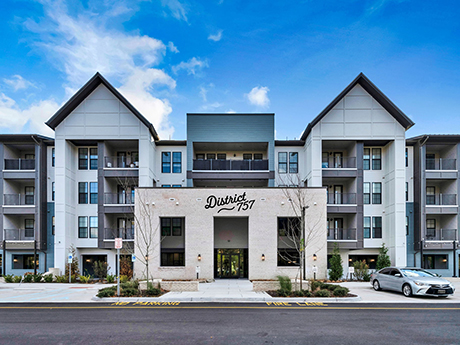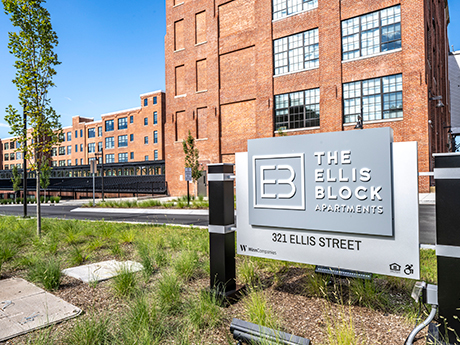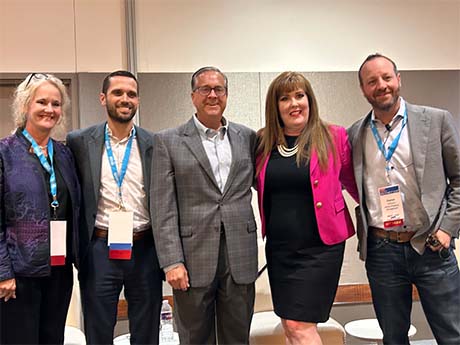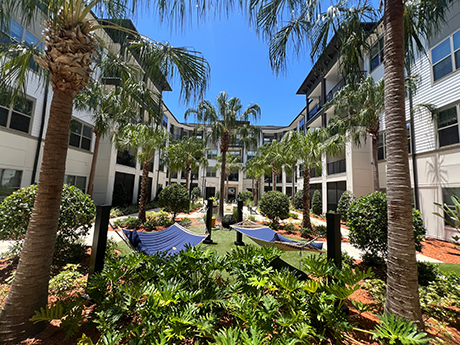By Joe Gose Lenders and mortgage bankers entered 2025 unsure how busy they would be. From President Trump’s seesawing tariff messages that ramped up market volatility to weak fundamentals in oversupplied Sun Belt markets, their misgivings were well-founded. A sluggish start to the year cast a shadow over whether the government sponsored agencies (GSEs) of Fannie Mae and Freddie Mac would hit their multifamily loan purchase caps of $73 billion each. But financings eventually gained momentum among the GSEs as well as life insurance companies, commercial mortgage-backed securities (CMBS) lenders …
Features
Investments in major new construction and redevelopment projects from the central business district out to the suburbs signal investor opportunity. By Jason Stevens, Lument It has been 12 years since Detroit, having lost more than a quarter of its population between 2000 and 2013 and seen its tax revenues plummet, became the largest U.S. city to declare bankruptcy. The city endured decades of hardship, and many neighborhoods struggled with vacancy until recent revitalization efforts began to take hold. Today, Detroit’s turnaround is well underway. Government finances are on a firm …
In exclusive survey, lending community says apartment sector offers best financing opportunities in 2026, expresses confidence deal volume overall will surpass 2025 levels. By Matt Valley Despite pockets of overbuilding and stalled or falling rents in many apartment markets across the country, 80 percent of lenders and financial intermediaries who participated in France Media’s 15th annual forecast survey indicated the multifamily sector provides the most attractive financing opportunities for lenders today. While multifamily is the clear leader of the pack in their eyes, 56 percent of respondents cited industrial as …
Affordable Housing Providers Have a Legal Responsibility to Know How Their AI Tech Works
Artificial intelligence use cases are increasing across many sectors, including housing. Potential deployment of AI can involve a wide range of uses, including AI-enabled customer service, rental analytics and internal operations efficiency, among others. As adoption continues, and regulators and legislators focus their attention on AI, the regulatory landscape involving privacy and housing-related issues is becoming increasingly complex. AI tools can raise a wide range of privacy and security concerns. Multifamily owners who have a working knowledge of AI-related federal and state policy issues will be set up for success, …
By Christine Faverio When it comes to adaptive reuse, the opportunities to preserve cultural heritage, promote sustainability and provide affordable housing are undeniable. But while these projects are immensely rewarding, they also come with complex regulatory, financial and design challenges. In the Northeast, projects such as the Ellis Block Apartments in New Britain, Connecticut, designed by JCJ Architecture, reveal several key strategies that can help developers and design teams successfully navigate adaptive reuse. Recognize Buildings with Adaptive Reuse Potential Identifying the right candidate building is the first step. Recognizing the …
By Nellie Day It started as a convenience, but now it’s an expectation. Yes, we’re talking about online shopping — or more accurately, the mound of heavy, oddly shaped and ever-delivered boxes that unite multifamily residents with their latest e-commerce obsession. Once considered a tedious operational task, package management has become a daily — sometimes hourly — balancing act between service, space and sanity. Residents expect the same fast, efficient experience they get from Amazon, while owners and managers are left to pick up the pieces, or rather the packages, …
Skillful players are leveraging a bevy of public and private funding sources to get projects across the finish line. By Jack Rogers As costs of affordable housing projects continue to rise, developers are meeting the challenge by pulling together a resilient capital stack with a growing range of sources for gap financing, bridge loans and grants. They’re also diversifying the range of projects they undertake and mitigating their costs by redeveloping underutilized publicly owned property, acquiring leases for sites that are being rezoned to housing from other uses and with …
InterFace Panel: AI Has Infiltrated Multifamily Management Without Compromising The Human Touch
By Taylor Williams DALLAS — Technological innovation has long been a cornerstone of managing and leasing multifamily properties, and that feature of the business has only been augmented in the era of artificial intelligence (AI). But for all the operational conveniences and efficiencies that AI potentially brings to the table, multifamily management has not yet reached the point of phasing out the human element. Almost immediately after the members of the leasing and management panel at the annual InterFace Multifamily Texas conference had introduced themselves, this fundamental premise of multifamily …
By Paul Berry Jacksonville is increasingly recognized as an outstanding place to live, work and build a business. Its multifamily sector, while recently challenged by a wave of new supply, is set for a rebound that will reward patient investors. With peak deliveries now in the rearview mirror, the metro area is well positioned for a strong cyclical upswing, complementing its already robust economic trajectory. Core Drivers: Population Growth, Pro-Business Jacksonville is a legitimate, big-league city. The population of the metro area has reached 1.76 million, growing by about 37,000 …
In What Ways Is Student Housing a Different Animal Than Conventional Multifamily? InterFace Panel Weighs In
ATLANTA — Andrew Layton, chief acquisition officer for Atlanta-based Student Quarters, knows that from a commercial real estate investment standpoint, the student housing sector possesses a key advantage: the relative permanence of many flagship universities nationally. “There is no risk of the University of Kentucky uprooting itself from Lexington and moving to Frankfort anytime soon. In the conventional multifamily world, neighborhoods come, neighborhoods go. What was hot yesterday may not be so hot today. What was cold yesterday may be the flaming new market tomorrow. That’s just not the case …











